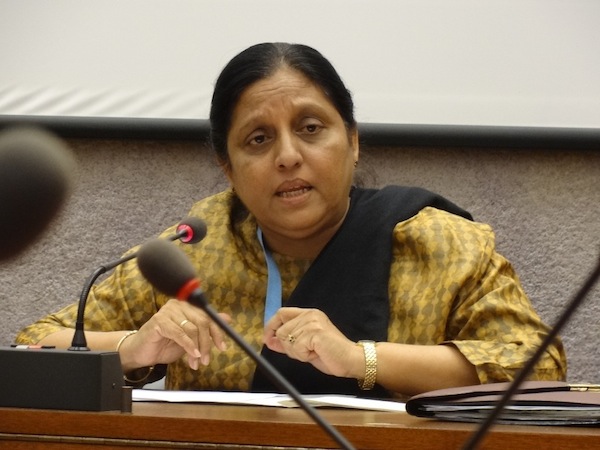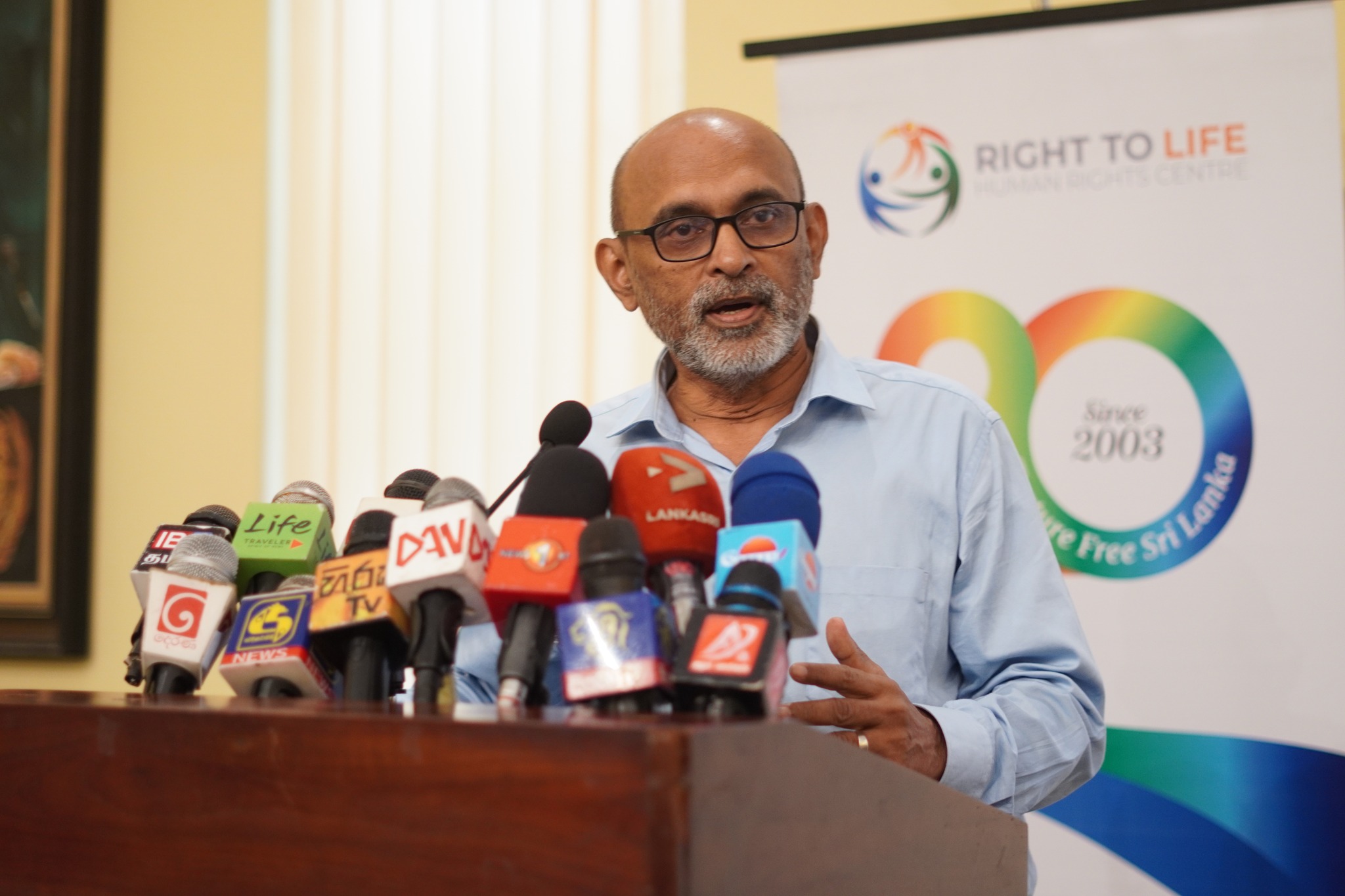During the final stages of the war in May 2009, a number of civilians trapped in areas affected by attacks from both the military and the LTTE lost their lives, while many others were confined to limited spaces near the Mullivaikkal coast for several days. These civilians faced severe shortages of food, drinking water, and medicine, forcing them to struggle for survival.
Every year on May 18th, the Tamil community commemorates this day as a day of mourning for their people who were killed. From May 12th to 18th, they engage in various activities to remember the deceased, including those who died in the war. It is common in the Northern and Eastern regions to light candles and perform rituals for the dead.
During these commemorations, the Tamil people organize alms-giving events to distribute a special type of porridge known as “Mullivaikkal Kanji.” This porridge, named after the region, was made from a mixture of water, rice, and broken lentils, and was a means of survival for those facing extreme hardships in the final days of the war. Despite its lack of flavor and insufficient nutritional value, it provided strength to survive.
For the Tamil people, Mullivaikkal porridge is more than just food; it is a symbol. Similar to the Israelites who ate unleavened bread during their exodus to remember their suffering in Egypt, the Mullivaikkal porridge symbolizes the struggle and survival of the Tamil people during the war.
This tradition, which had been maintained for many years, was banned in 2024. The police, obtaining court orders, took steps to prohibit the distribution of Mullivaikkal porridge in the Eastern Province. Additionally, they threatened people against attending annual gatherings to remember their deceased relatives. On the night of May 12th, Sampur police raided a house, assaulted three women, and arrested another person along with Kamaleshwaran Thenilla (22), Kamaleshwaran Vijitha (40), Selva Vinodh Sujani (40), and Navaratna Rasa Harihar Kumar (43).
The police justified these actions by claiming that the events were commemorating deceased LTTE members. However, Tamil human rights activists assert that the remembrance of LTTE members takes place annually on November 26, Prabhakaran’s birthday. On May 18, the focus is entirely on the civilians who were killed.
In response to the ban and arrests, human rights activists, politicians, and civil society groups expressed their opposition. Human rights lawyer and activist Ambika Satkunanathan commented: “In May, the Tamil people remember all those who died in the war, especially those who died in the final stages. The government disrupts these events, alleging they are commemorating the LTTE and revitalizing terrorism. The LTTE members who died in the armed struggle are remembered on Mahaveer Day in November. In May, they remember all those who died in the war. The police use sanitation as one reason to ban the porridge distributions. There were gatherings in May. They distributed food. Thousands of people gathered there. Next week is Vesak. There are alms-giving events for Vesak. Will the police seek court orders to ban those too? They think that reconciliation means achieving justice. There is no right to know what happened. No right to hold memorials. They believe reconciliation means forgetting everything that happened to us and not challenging the government’s version of the war and its consequences. There should be rights for memorialization and compensation for the losses.”
The Young Journalists’ Association filed a complaint with the Human Rights Commission against these actions. They highlighted that the police were obstructing the memorial activities, despite the 2016 Human Rights Commission’s recommendation to affirm the “right to remember.” The Young Journalists’ Association further emphasized that they would investigate if the police’s actions constituted a violation of the International Covenant on Civil and Political Rights (ICCPR) and seek to have the arrested individuals released on remand.
In a country that has experienced war, the police’s actions illustrate that the state still does not respect the basic rights of the victims, according to Tharindu Jayawardena, the chairman of the Young Journalists’ Association, who notified the Human Rights Commission through their complaint.
For more information, refer to the [BBC Sinhala article](https://www.bbc.com/sinhala/articles/crgyg1zzme0o).
Detailed Timeline of the Final Days of the Sri Lankan Civil War
2008:
– Ceasefire Annulled: In early January, the Sri Lankan government annuls the ceasefire and launches a massive offensive against the LTTE (Tamil Tigers).
January 2, 2009:
– Kilinochchi Seized: Sri Lankan troops seize the Tigers’ de facto capital, Kilinochchi, dealing a significant blow to the LTTE.
April 17, 2009:
– Call for Truce: Rebels call for a truce after a two-day government fighting pause expires. The government rejects this call, suspecting it to be a ruse.
April 20, 2009:
– Surrender Ultimatum: Sri Lanka gives the rebels 24 hours to surrender as tens of thousands of civilians flee the battle zone. Over 115,000 civilians manage to escape within a week.
April 26, 2009:
– Unilateral Ceasefire: The Tigers declare a unilateral ceasefire, which the Sri Lankan government dismisses, insisting that the LTTE must surrender unconditionally.
May 16, 2009:
– Coastline Control: The military gains control of the entire coastline for the first time since the war began. President Mahinda Rajapaksa announces the military defeat of the LTTE during a meeting of developing nations in Jordan, even as heavy fighting continues.
May 17, 2009:
– Final Battles: More than 70 LTTE fighters disguised as civilians are killed while attempting to flee by boat. Many more commit suicide attacks as the army presses to end the conflict. The military declares that all civilians have been freed, totaling over 72,000 within four days.
May 18, 2009:
– End of Hostilities: The military announces that the entire island is under government control after defeating the remaining Tiger resistance. LTTE leader Velupillai Prabhakaran is killed by special forces troops while attempting to escape.
Aftermath and Displacement:
Post-War Situation: With the war officially over, nearly 300,000 displaced civilians are housed in temporary camps. Conditions in these camps are harsh, with overcrowding and inadequate facilities and supplies. International organizations express deep concern and call for immediate humanitarian assistance.
The right to memorialization refers to the recognition and protection of individuals’ and communities’ rights to remember, commemorate, and honor their past, especially in contexts where they have experienced significant trauma, loss, or oppression. This concept is deeply connected to human rights, historical justice, and the collective memory of societies.


